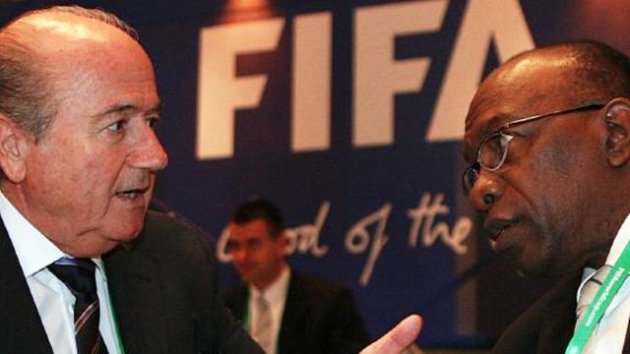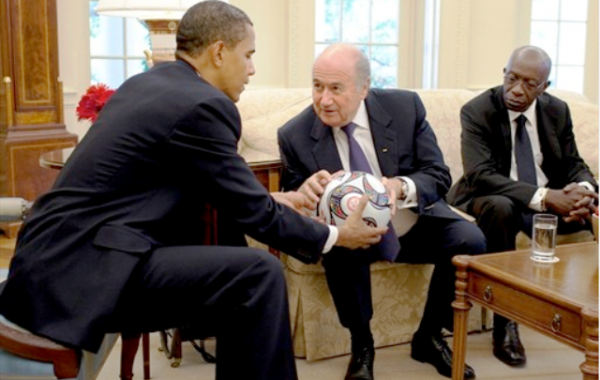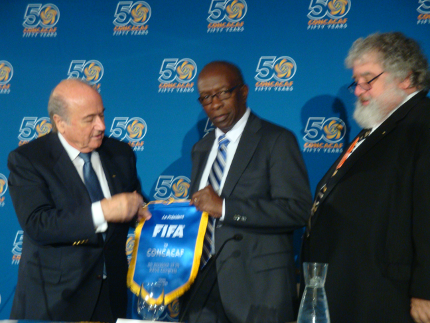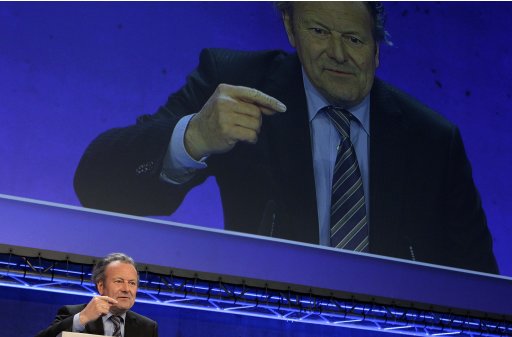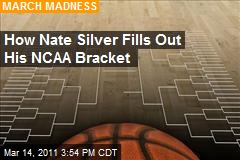On Friday, CONCACAF (the Confederation of North, Central American and Caribbean Association Football) released
the report of its "Integrity Committee" which it describes as follows:
The Integrity Committee was established by the Executive Committee of
CONCACAF by resolution dated June 26, 2012, and was charged with
conducting an investigation of certain matters related to the conduct of
the former management of CONCACAF.
Before I get to the top line conclusions of the report let me first note the following recommendation of the FIFA Independent Governance Committee which has not been accepted by FIFA (
PDF):
The IGC would like to stress the importance of transparency in the area of compensation and benefits. The establishment of an expert subcommittee to the Audit and Compliance Committee is an important step. However, the decisions of the sub-committee need to be made public, to the same degree as in not-for-profit organizations and other international organizations.
As you will see, this is not a matter such as making Sepp Blatter's compensation public, but rather, a matter of preventing the wholesale looting of football associations for personal gain. Onto the report.
The report focuses on the activities of Jack Warner and Chuck Blazer (pictured above), both of whom have been discussed on multiple occasions on this blog. Here is the remarkable list of top line conclusions of the report:
• Warner Committed Fraud Against CONCACAF and FIFA
• Warner Committed Fraud and Misappropriated Funds from FFA
• Warner and Blazer Breached Their Fiduciary Duties to CONCACAF
• Warner and Blazer Violated the CONCACAF Statutes
• Warner Violated the FIFA Ethics Code
• Blazer Misappropriated CONCACAF Funds
• Warner and Blazer Breached Their Fiduciary Duties to CONCACAF
• Blazer Violated the CONCACAF Statutes
• Blazer Violated the FIFA Ethics Code
• Blazer Violated U.S. Federal Tax Laws
• Blazer Breached His Fiduciary Duties to CONCACAF and CMTV
• Blazer Violated the CONCACAF Statutes
• Warner and Blazer Committed Fraud Against CONCACAF
• Warner and Blazer Breached Their Fiduciary Duties to CONCACAF
• Warner and Blazer Violated the CONCACAF Statutes
Not surprisingly, neither Warner nor Blazer cooperated with the investigation meaning the the investigators relied a great deal upon investigative reporting from the media to assemble the report. This means that much of the information in the report has been publicly available for some time, and should serve as (another) vindication of the excellent reporting that has been done by reporters, and largely ignored by FIFA (or worse, treated hostile fashion).
The scope of the alleged fraud is remarkable, totaling to the tens of millions of dollars. It is also comedic in its apparent brazenness. One of the holding companies that Jack Warner incorporated to take ownership of a FIFA-sponsored football training center -- called a Centre of Excellence -- the report alleges, was named Renraw Investments Limited. Yes, that is "Renraw" as in Warner spelled backwards.
FIFA was contacted by the CONCACAF Integrity Committee on this issue. Here is how the report characterizes the response:
As FIFA informed CONCACAF in 2012, based on its review of records, it “was never aware that the Centre of Excellence would not be owned by CONCACAF."
Because FIFA has also rejected the following recommendation of the IGC, FIFA is in effect saying that it does not want to have the capability to identify such fraudulant activities -- even when it comes to the misappropriation of FIFA funds.
That the President and all Members of the ExCo as well as the standing Committees of FIFA undergo an integrity check performed by an independent body within FIFA centrally prior to their (re-)election.
The scale of the alleged corruption is staggering. The report quotes Chuck Blazer as saying:
“[T]here are so many things that we could have done with the 10s of millions of dollars wasted there.”
Here is tabulation of the looting of CONCACAF according to my reading of the report:
- $16 million (misappropriated Centre of Excellence, from FIFA, T&T)
- $10 million (more COE, from FIFA FAP funds, other?)
- $462,000 (COE, from Football Federation Australia)
- $11 million (CONCACAF expenses paid to Warner)
- $20 million (CONCACAF compensation to Warner)
- $20.6 million (CONCACAF compensation to Blazer)
- ~$10 million? (CONCACAF for Trump tower apartment, Miami South Beach apartments, Bahamas apartment, a Hummer, American Express account, insurance)
This totals to a staggering $88 million!
The Integrity report concludes:
The record leaves no doubt that Jack Warner and Chuck Blazer did much to promote and develop the sport of football both in the CONCACAF region and globally over a period of more than two decades. Each man deserves considerable credit for his contributions to the advancement of football. Nevertheless, it is equally apparent that Warner and Blazer, together and individually, used their official positions to promote their own self-interests, and frequently acted with disregard for the interests of the CONCACAF member associations and with disdain for the rules that governed their conduct. Furthermore, it is apparent that Warner and Blazer each was aware of the risk of potential misconduct posed by the other and was most capable of holding the other accountable; but neither did so, at least in part, to preserve the unfettered freedom to act in his own self-interest. This mutual lack of accountability enabled Warner and Blazer to coexist in unity for many years until May 2011, when Blazer disrupted the balance by reporting Warner to FIFA for ethics violations related to Mohamed bin Hammam’s campaign for President of FIFA.
The Integrity Report leads to questions:
- What will FIFA do in response?
- What will CONCACAF do in response?
- What will Sunil Gulati, newly elected CONCACAF representative (US) and FIFA IGC member, do in response?
- What will US authorities do in response?
Football governance has reached another important fork in the road.







